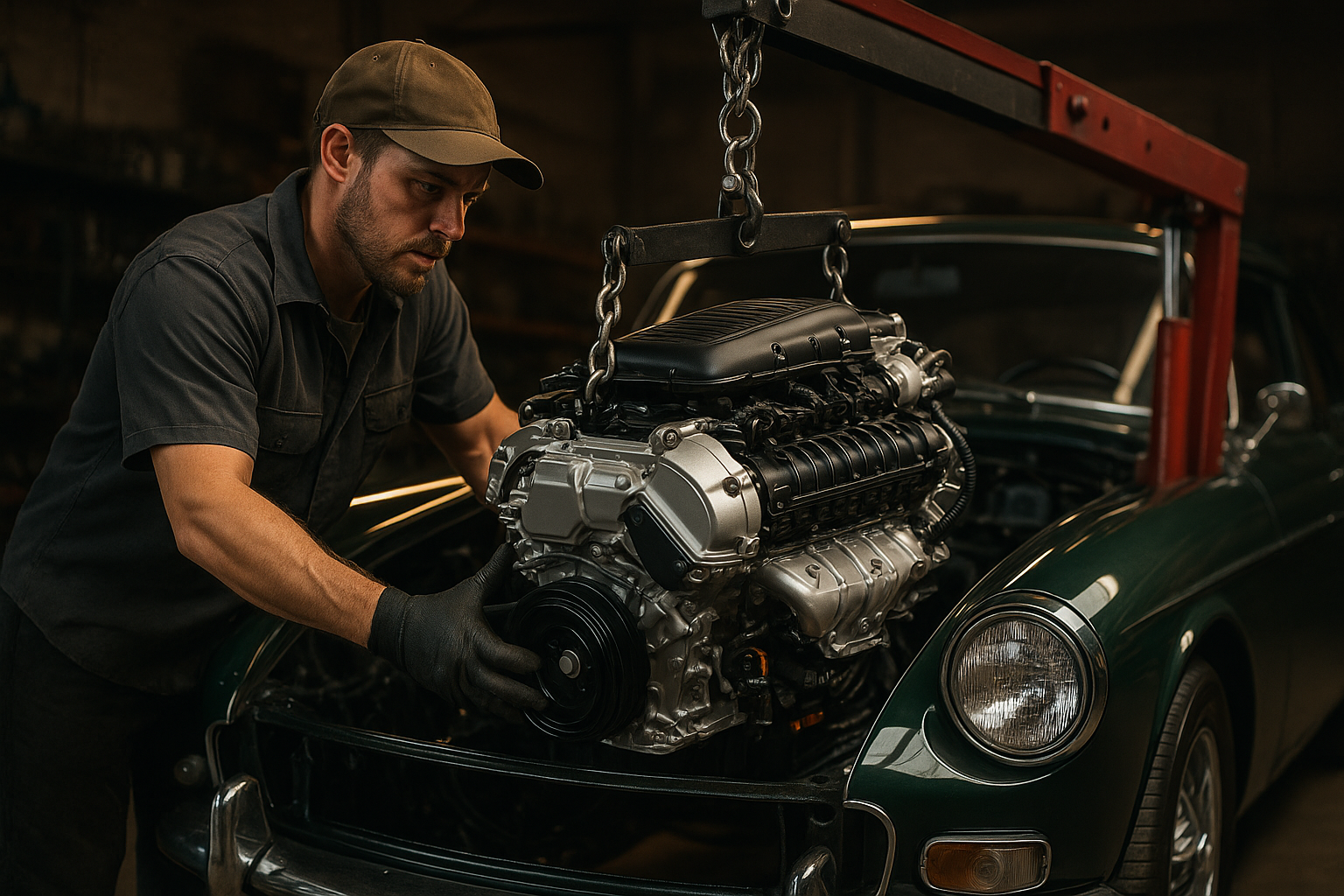Understanding Car Repair Options and What Affects Your Choices
From routine maintenance to unexpected breakdowns, vehicle repair is something most drivers will encounter sooner or later. Knowing what to expect, how to compare service options, and what factors influence repair decisions can help you feel more prepared. Whether it’s engine work, brake issues, or something in between, understanding your options matters.

What are the most common types of vehicle repairs?
Vehicle repairs can range from simple maintenance tasks to complex mechanical overhauls. Some of the most frequent repairs include:
-
Oil changes and fluid replacements
-
Brake pad and rotor replacements
-
Battery replacements
-
Tire rotations and replacements
-
Engine tune-ups
-
Alternator or starter motor replacements
-
Suspension and steering system repairs
Understanding these common repair types can help you anticipate potential issues and better communicate with mechanics when problems arise.
How can you effectively compare local car repair services?
When your vehicle needs attention, comparing local repair services is crucial for finding the best value and quality. Here are some strategies to help you make an informed decision:
-
Read online reviews and ratings from multiple sources
-
Ask for recommendations from friends, family, or local community groups
-
Check for certifications and qualifications of mechanics
-
Request detailed quotes from multiple shops for the same repair
-
Inquire about warranties on parts and labor
-
Consider the shop’s specialization (e.g., specific car brands or types of repairs)
By taking the time to compare options, you can find a reliable service provider that meets your needs and budget.
What factors affect repair timelines and costs?
Several variables can influence how long a repair takes and how much it costs:
-
Complexity of the repair
-
Availability of parts
-
Shop’s workload and scheduling
-
Type and age of your vehicle
-
Labor rates in your area
-
Quality of parts used (OEM vs. aftermarket)
-
Diagnostic time required
Understanding these factors can help you set realistic expectations and budget appropriately for repairs. It’s always a good idea to ask for an estimated timeline and breakdown of costs before authorizing any work.
How do you choose between dealership and independent shops?
The decision between a dealership and an independent shop often comes down to personal preferences and specific repair needs. Here are some factors to consider:
Dealerships:
-
Often have specialized knowledge and tools for specific brands
-
May offer better warranty coverage for newer vehicles
-
Generally have higher labor rates
Independent shops:
-
Usually offer more competitive pricing
-
May provide more personalized service
-
Can often work on a wider range of vehicle makes and models
Ultimately, the right choice depends on your vehicle’s age, the complexity of the repair, and your budget constraints.
What unique considerations apply to car repairs in the United States?
In the United States, car repair practices and considerations can vary significantly:
-
State-specific regulations may affect repair procedures and costs
-
The prevalence of DIY culture means many car owners attempt minor repairs themselves
-
The vast size of the country leads to regional differences in repair costs and availability of services
-
Extended warranty options are widely available and can influence repair decisions
-
The used car market is robust, affecting decisions between repairing and replacing vehicles
These factors contribute to a diverse and dynamic car repair landscape across the country.
How do repair costs compare across different services and providers?
When it comes to car repairs, costs can vary widely depending on the service and provider. Here’s a comparison of average costs for common repairs across different types of service providers:
| Repair Service | Dealership | Independent Shop | Chain Repair Center |
|---|---|---|---|
| Oil Change | $65-$125 | $30-$75 | $40-$90 |
| Brake Pad Replacement | $300-$800 | $150-$400 | $200-$500 |
| Timing Belt Replacement | $700-$1200 | $500-$900 | $600-$1000 |
| Alternator Replacement | $500-$1000 | $300-$700 | $400-$800 |
| Tire Rotation | $50-$100 | $20-$50 | $30-$70 |
Prices, rates, or cost estimates mentioned in this article are based on the latest available information but may change over time. Independent research is advised before making financial decisions.
These figures provide a general idea of cost variations, but remember that actual prices can differ based on factors like vehicle make and model, location, and specific shop rates. Always get multiple quotes for significant repairs to ensure you’re getting a fair price.
In conclusion, understanding your car repair options and the factors that influence them is crucial for every vehicle owner. By familiarizing yourself with common repair types, comparing local services, and considering the various factors that affect repairs, you can make more informed decisions when your car needs attention. Whether you choose a dealership, independent shop, or chain repair center, being an educated consumer will help you maintain your vehicle effectively and economically.




